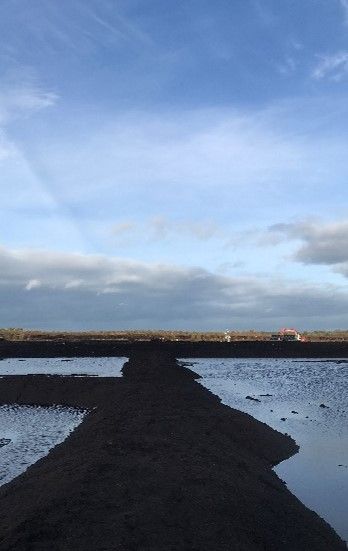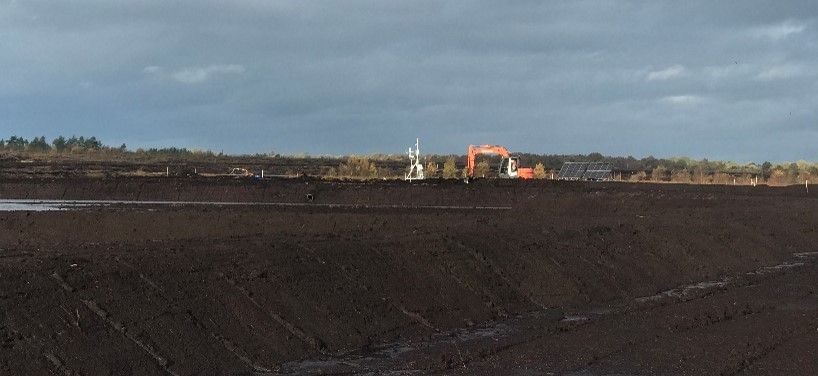/prod01/channel_3/media/tcd/civil-engineering/img/mariana-silva.jpg)
Project Title: Rewetting of Peatlands for Enhanced Restoration (WET-PEAT)
Bord na Móna has recently transformed into a sustainable, green business, which now emphasises the use of its land assets for renewable energy and resource recovery in support of government policy and national decarbonisation commitments. As part of this transformation, the Peatlands Climate Action Scheme (PCAS) will, over the coming years, establish engineering and ecology works on 33,000 ha of bogs to accelerate natural restoration processes. These actions will increase carbon storage and reduce carbon emissions, improve water quality and water attenuation, and will enhance biodiversity.

The PCAS process involves stakeholder engagement, the development of drainage management and rehabilitation plans, and a range of other types of assessments (archaeological and appropriate assessments). To date, this work has been extensive and has involved extensive consultation with various stakeholders, as well as a thorough flow and water quality monitoring regime. Re-wetting of Peatlands for Enhanced Restoration (“WET-PEAT”) will work in parallel with the PCAS by providing an independent monitoring programme that will (1) assess and supplement the work of PCAS (2) deliver recommendations and, where needed, carry out changes in the management and execution of rehabilitation measures in at least five sites (3) provide an evaluation of the water quality and hydrological improvements, and (4) disseminate all knowledge gained to stakeholders and the general public.

Working with Bord na Móna and other key stakeholders, this research project will harness all the knowledge collected to date, including information from currently funded EU and national peatlands projects in which the proposers are involved (national: SMARTBOG, SWAMP; international: WATERPEAT), to (1) screen and identify potential study sites for particular focus and provide early feedback on works completed to date (2) monitor the study sites both before and after intervention from water quality, hydrology, hydrolgeology, earth observation and policy aspects, and (3) communicate the study findings to various audiences.

Supervisor: Dr. Laurence Gill
